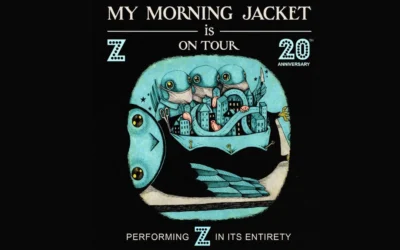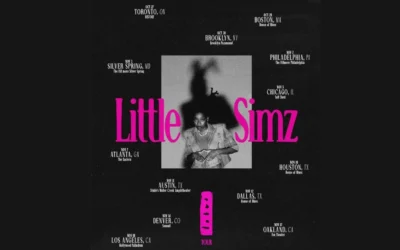Spoiler alert: the millions (billions) of live event fans who are demanding significant change to the ticketing experience shouldn’t hold their breath.
The Department of Justice and members of the US Congress will never do anything meaningful to reverse the monopoly they created when they approved the merger of Live Nation and Ticketmaster fourteen years ago. Since that merger, LNE’s political and financial tentacles have grown to stretch too far and wide for pro-consumer reforms to occur.
Lina Khan, the FTC chair recently commented that Live Nation and other companies at or near its scale of dominance have become “too big to care.” Unfortunately, that might mean that they’re not just “too big to care” about innovation, but they may also be too big to enforce customer reforms, regardless of the collective demand and need for it. The company’s reach and connections are so long and wide that it may be impossible for federal lawmakers to overcome.
For high level government officials, especially the FTC, the acknowledgement that giant firms have no, or even negative, incentives to invest in innovation or customer care because they do not face tough competition is an important recognition. It should lead to government officials adopting reforms to improve the customer’s experience for live events, including reducing ticket prices. But will the government adopt reforms to improve the consumer experience?
Ticketmaster and its parent Live Nation were under heavy fire in January, as its president and CFO Joe Berchtold was forced to answer withering questions from the Senate Judiciary Committee at its hearing examining the ticketing and live events industry in Washington, D.C. The hearing was scheduled in the wake of widespread outrage directed at the entertainment giant in the wake of the Taylor Swift Eras Tour ticket sales process in November. It featured some very strong signals that lawmakers are serious about consumer issues in ticketing and the possibility that strong action may be necessary.
The next month President Joe Biden raised the issue of ticket reform in his State of the Union address. In the wake of the congressional hearing and Biden’s remarks, Live Nation and its army of lobbyists struck back. Irving Azoff, the live entertainment industry guru and representative of mega acts such as Garth Brooks, as well as the former CEO of Ticketmaster and chairman of Live Nation, immediately convened a panel of “experts” at the Pollstar Live! annual conference and launched a full frontal attack on the US Senate. The panel included Brooks, Madison Square Garden executive chairman James Dolan and former attorney general for the United States Department of Justice’s antitrust division Makan Delrahim.
Delrahim went from a government anti-trust enforcer to a major mouthpiece for companies like Live Nation through his partnership at the powerhouse law firm Latham & Watkins LLP. He is also on the board of Osiris Acquisition Corp., a special purpose acquisition company which was incorporated for the purpose of effecting a merger, capital stock exchange, asset acquisition, stock purchase, reorganization, or similar business combination with one or more businesses. Osiris is a subsidiary of the Jefferies Financial Group, whose major shareholders are The Vanguard Group and Geode Capital Management LLC. Put a pin on these two companies, we will have more to report on later in this article.
Judging their reaction to the senate hearing, including suggesting that the senators supported policies which treated artists as if they were in Iran, North Korea and China, and politicians only care about reelection and clicks, made one believe that perhaps the Senate was going to do something to protect the consumers. But Azoff also revealed at the forum that he and his wife had dinner with a sitting US Senator who, according to his words, stated “now the show is over, that was just a show.”
Soon after, the show continued, with several members of congress proposing bills, including the Unlock Ticketing Markets Act, the Junk Fee Prevention Act, the FANS First Act, the TICKET Act, and the most comprehensive proposal for reform submitted by New Jersey Congressman Bill Pascrell, the BOSS SWIFT Act.
The American Antitrust Institute even provided a roadmap for how a structural remedy breaking up Ticketmaster and Live Nation could be accomplished, followed in relatively short order by reports indicating that the Department of Justice is already considering a lawsuit that could have just that goal.
It appears that the public is soundly behind reforms, the president made it a cornerstone of his State of the Union address, the senators seemingly body slammed Live Nation/Ticketmaster at their hearing, and they are all falling over themselves to propose solutions, though weak. So again, will the government adopt reforms to improve the consumer experience? The answer is more than likely they will not.
Why not?
The Dawn of Live Nation
Founded in 1996 as SFX Entertainment, the company’s business was built around consolidating concert promoters into a national entity to counter the oversized influence of ticket behemoth Ticketmaster. In 2000, the company was sold to Clear Channel Communications for $4.4 billion and operated as Clear Channel Entertainment until 2005, when it was spun off as Live Nation.
In 2010, the United States Department of Justice approved the merger of Live Nation with Ticketmaster to form a larger conglomerate named Live Nation Entertainment. This was approved despite stiff opposition to the merger from both consumers and artists, including Bruce Springsteen, who wrote “the one thing that would make the current ticket situation even worse for the fan than it is now would be Ticketmaster and Live Nation coming up with a single system, thereby returning us to a near monopoly situation in music ticketing,”
“The Depth of Live Nation’s Dominance
A recent report by the American Economic Liberties Project, “The Depth of Live Nation’s Dominance” examined just that. The non-profit and non-partisan think tank gathered data related to the top 300 venues in the world and determined that Live Nation dominated almost every aspect of the live events, and more specifically, the live music industry. The company has enormous market shares in concert promotion, ticketing, artist management, and venue operations. This integrated market power gives Live Nation a significant advantage in the industry, where it can leverage one business line to maintain dominance and stifle competition in another. AELP shared one example where “in 2013, three years after Live Nation merged with Ticketmaster, Live Nation was found diverting a Matchbox Twenty tour (which it was promoting) from a popular arena, because the venue had replaced Ticketmaster with another ticketing provider.”
They hope that their report would “help inform the public and industry stakeholders” and additionally could “help identify trends in the industry and provide granular market information for regulators looking to maintain fair competition in the sector.”
While their report was groundbreaking and informative, they failed to identify Live Nation’s connections to the regulators, and how that might affect reform.
Recent financial reports value LNE at over $22 billion dollars and growing. That is greater than the Gross National Product (GNP) of half the countries in this world. The company generated over $18 billion in revenue and has nearly $19 billion in assets. It is a monster which is growing every year and gobbling up most of its competition. And even more than that, it has ties to companies which span every industry.
What is the cost of business to play at the US Senate?
As reported by the website OpenSecrets in 2009, before the merger, Live Nation spent $410,000 on lobbying fees. By 2021, those fees had more than tripled to $1,250,000. But just reviewing the lobbying fees spent by LNE dos does not tell the full story. We must dig a little deeper to see LNE affiliations and connections. And that is where the story gets interesting.
Live Nation’s Financial Connections
LNE is a multinational corporation that has nearly 13,000 employees that spans dozens of subsidiaries, including Ticketmaster, Live Nation Concerts, Front Line Management Group, Live Nation Network, C3 Presents, AC Entertainment, and Live Nation Merchandise. Its major shareholders include:
| Shareholder | Shares | Other Connections |
| Formula One Group | 30.3% | This group is owned by Liberty Media (which also owns Sirius XM, and the Atlanta Braves); |
| The Vanguard Group | 7.7% | owned by American Vanguard Corporation, biggest investor is BlackRock Inc (16%), followed Vanguard Group (7%) |
| Public Investment Fund | 5.5% | owned by Saudi Arabia, is among the largest sovereign wealth funds in the world with total estimated assets of US$700 billion |
| Canada Pension Plan Investment Board | 3.6% | is one of the world’s largest investors in private equity |
| D1 Capital Partners LP | 1.4% | an American investment firm which invests in both public and private markets globally |
| Victory Capital Management, Inc. | 1.3% | is a diversified global asset management firm with $161.4 billion in assets, ranked No. 55 on the Fortune 100 Fastest-Growing Companies list, major shareholder in Walmart |
| Geode Capital Management LLC | 1.2% | a $1 trillion company that invests in public equity and alternative investment markets, major shareholder in Walmart |
| BlackRock Advisors LLC | 1.1% | One of the biggest institutional shareholders is The Vanguard Group, controls a huge number of shares in some of the largest companies in the world, with $10 trillion dollars in assets across the globe, an amount equal to half of America’s total GDP. Geode Capital Management LLC is another major stockholder. |
| Michael Rapino | 1.5% | currently is Co-President, Chief Executive Officer & Director at Live Nation Entertainment, Inc. He is also on the board of Sirius XM Radio, Inc. and Sirius XM Holdings, Inc. |
The shareholders in LNE are investors in almost every major publicly traded company in the United States. It profits from those companies’ operations and, as a major shareholder, bears significant responsibility for their governance and the impact of their operations across the world.
Live Nation’s Political Connections
Besides the $1.25 million LNE spends to lobby congress, Business Insider reported that more than 40% of members in Congress, or more than 220 representatives and senators, own individual stocks, collectively holding at least $225 million in stock assets. The top holdings are tech companies, which also have their own lobby budgets.
A sampling of the top companies which have congressional investors revealed that they too are financed by the same corporations as LNE.
| Company | Congressional Members Holding Shares | Top Shareholders (not all) | Lobby Costs |
| Apple | House: 59
Senate: 13 |
The Vanguard Group, Inc.
Fidelity Management & Research Co. LLC Geode Capital Management LLC |
$2,660,000 |
| Microsoft | House: 51
Senate: 13 |
The Vanguard Group, Inc.
Fidelity Management & Research Co. LLC Geode Capital Management LLC |
$2,421,847 |
| Disney | House: 34
Senate: 11 |
The Vanguard Group, Inc.
Geode Capital Management LLC |
$1,230,000 |
| Alphabet (Google) | House: 36
Senate: 9 |
Fidelity Management & Research Co. LLC
BlackRock Investment Management JPMorgan Investment Management, Inc. |
$3,430,000 |
| Amazon | House: 33
Senate: 11 |
The Vanguard Group, Inc.
Fidelity Management & Research Co. LLC Geode Capital Management LLC |
$5,060,000 |
| Johnson and Johnson | House: 33
Senate: 11 |
The Vanguard Group, Inc.
Fidelity Management & Research Co. LLC Geode Capital Management LLC |
$2,490,000 |
| Procter and Gamble | House: 34
Senate: 7 |
The Vanguard Group, Inc.
Geode Capital Management LLC JPMorgan Investment Management, Inc. |
$900,000 |
Halfway through 2023 these companies have already spent over $18 million in lobbying, and if they follow past experience, they are expected to spend over $48 million by the end of the year. Add to that the expected $90 million in federal political contributions.
With these financial connections, the odds are against a majority of congresspeople passing any meaningful legislation to reform the live entertainment industry.
What Hope do Consumers Have for Reform?
Live Nation has a stranglehold on the political process, but there are some notable exceptions with state and local government officials pushing back. In May Colorado Governor Jared Polis vetoed a Ticketmaster backed bill that the state legislature had passed despite significant concerns raised by consumer advocates in the state.
More recently, the City of Irvine’s city council “pulled the plug” on a proposed partnership with Live Nation to construct and manage a 10,000-seat amphitheater. Despite overwhelming opposition by residents to the exceedingly lopsided agreement, where the city would pay $130-$140 million in construction costs, Live Nation would have sole control over acts that perform at the amphitheater, would take all revenue from lucrative naming rights, and would be exempt from any future noise ordinances. Even with these obviously unfair terms to the city, Live Nation was one vote away (3-2) from securing approval.
The answer to whether consumer relief will occur on the federal level is directed by what the FTC chair alluded to, LNE is too big to care. And now they are too big to change. If live entertainment consumers are waiting for a white knight representing the federal government to ride in and provide relief, they better prepare for a long wait. Anything passed by this congress will just be window dressing that will probably provide additional protection for Live Nation, as evidenced by the current congressional proposals.
News of a potential anti-trust case brought by the Department of Justice in response to years of allegations detailing monopolistic and anti-competitive behavior by Live Nation and its subsidiaries is a welcome sight for many. But is it going to be too little, too late? Only time will tell.




